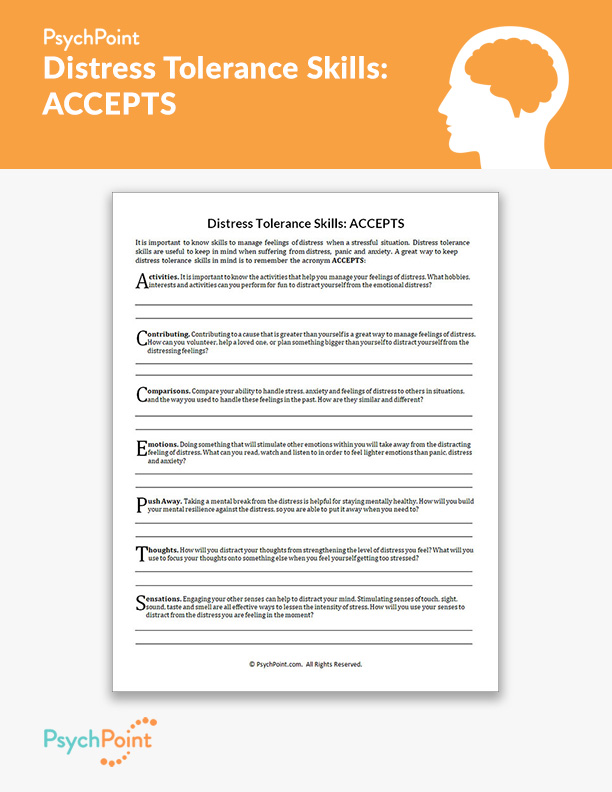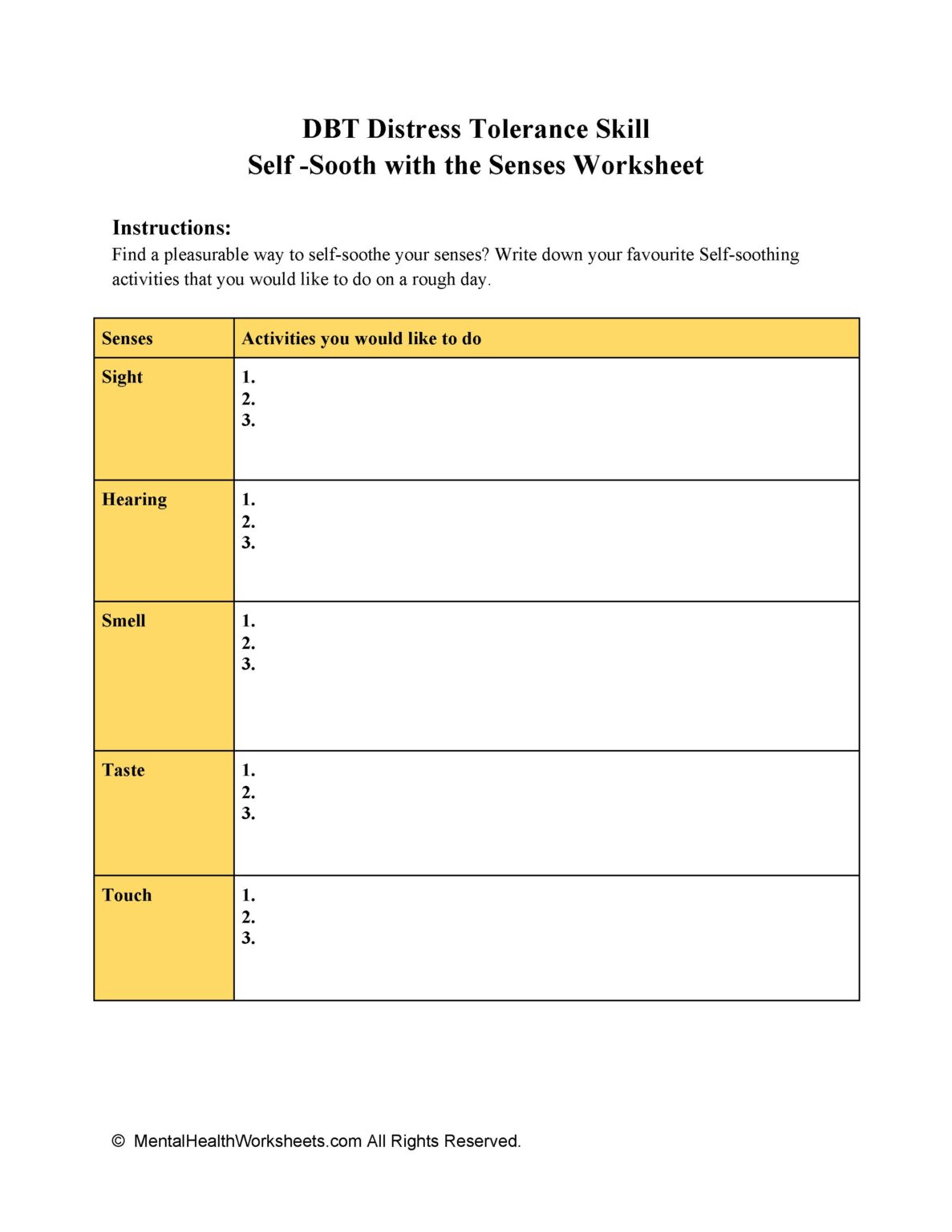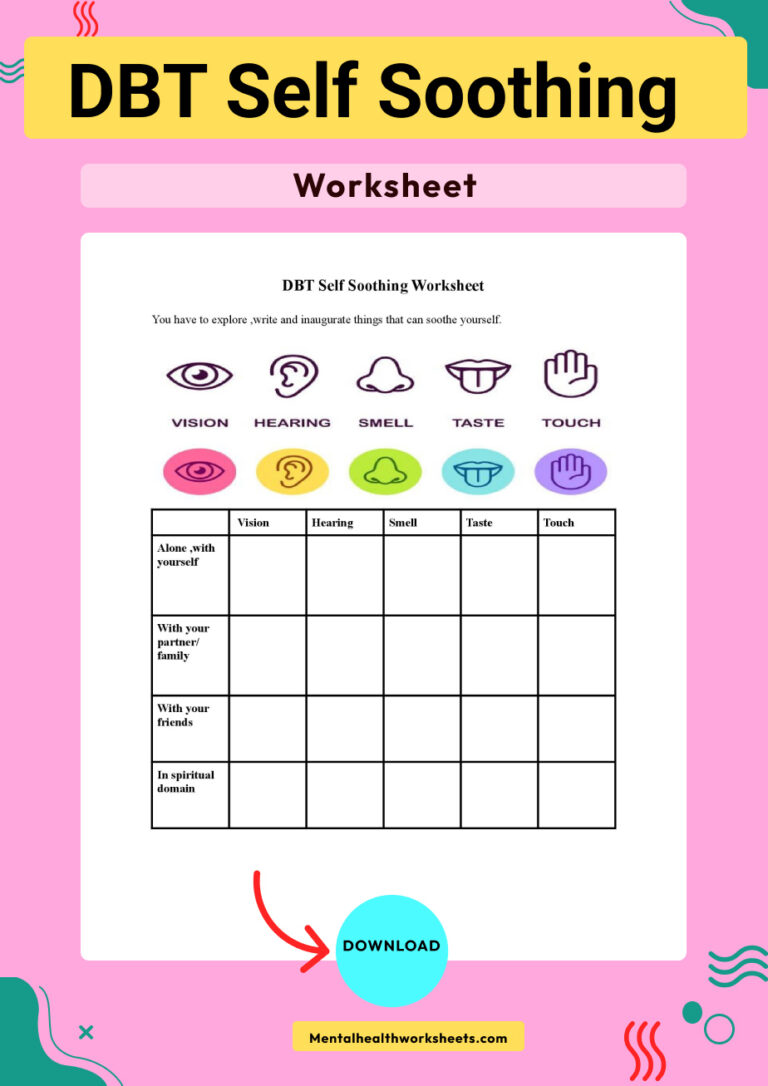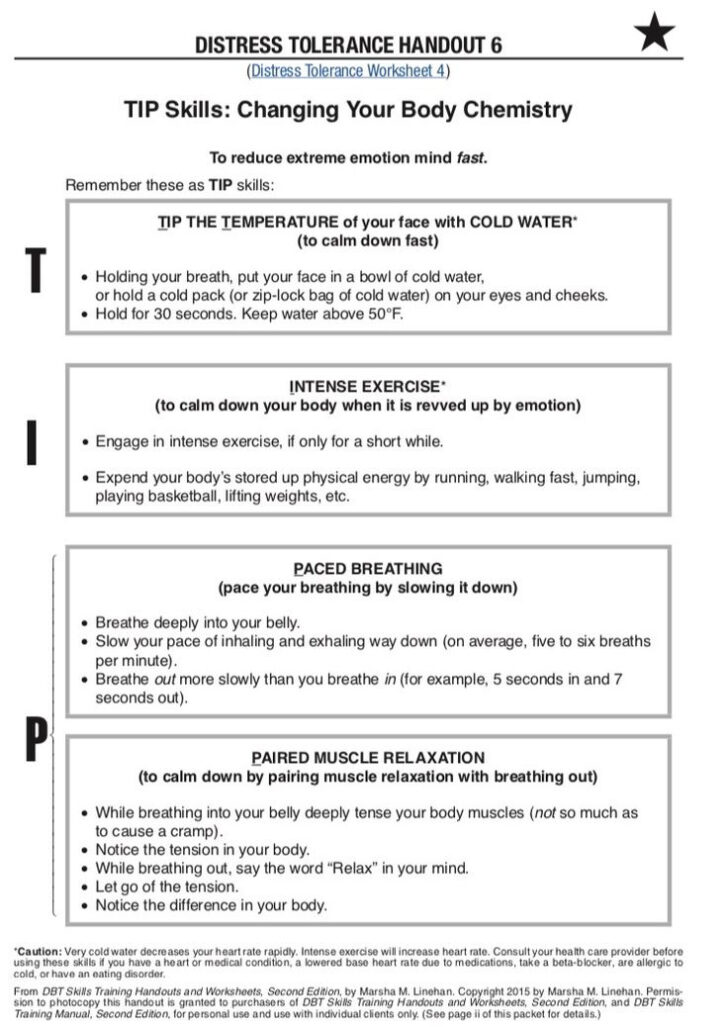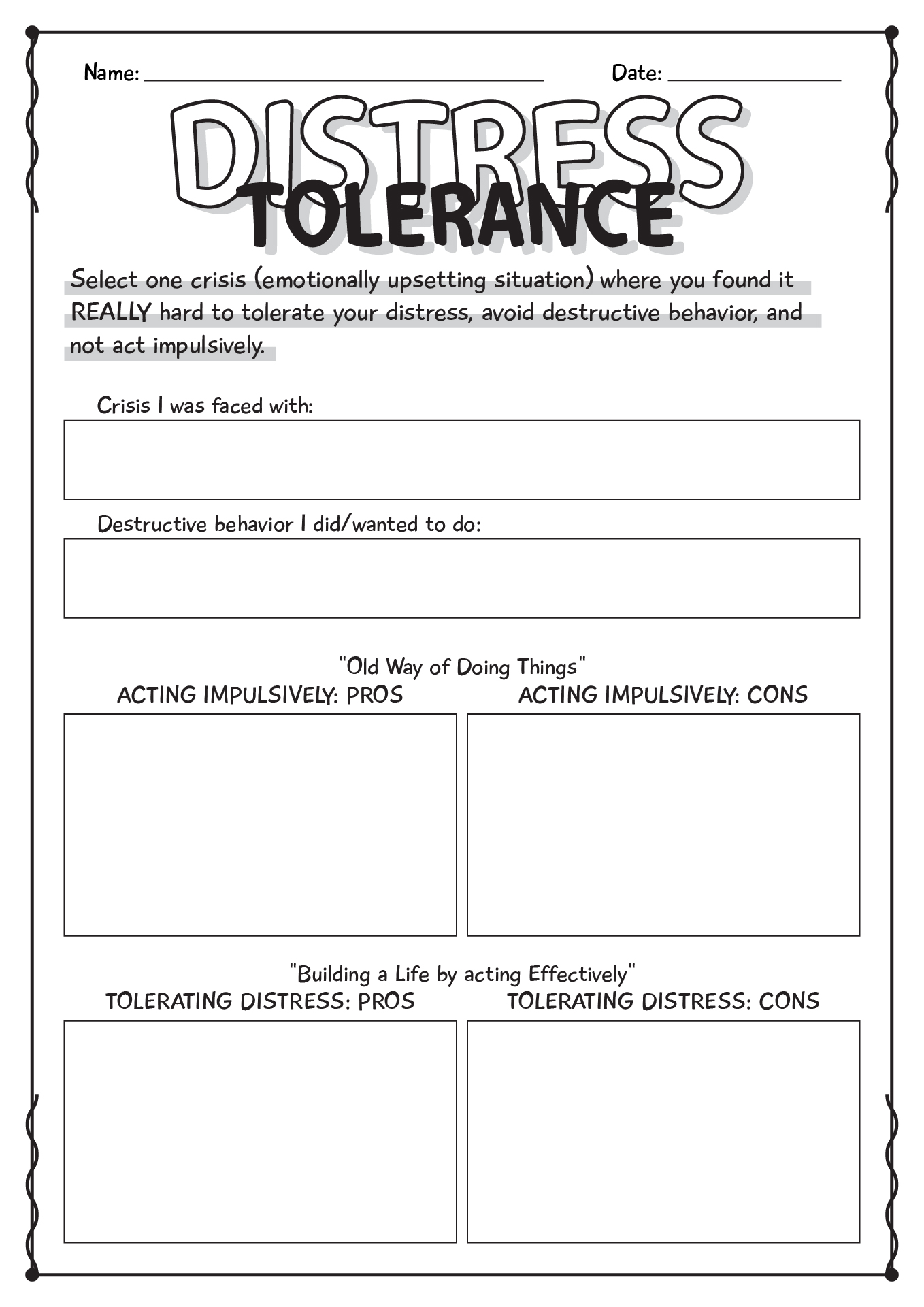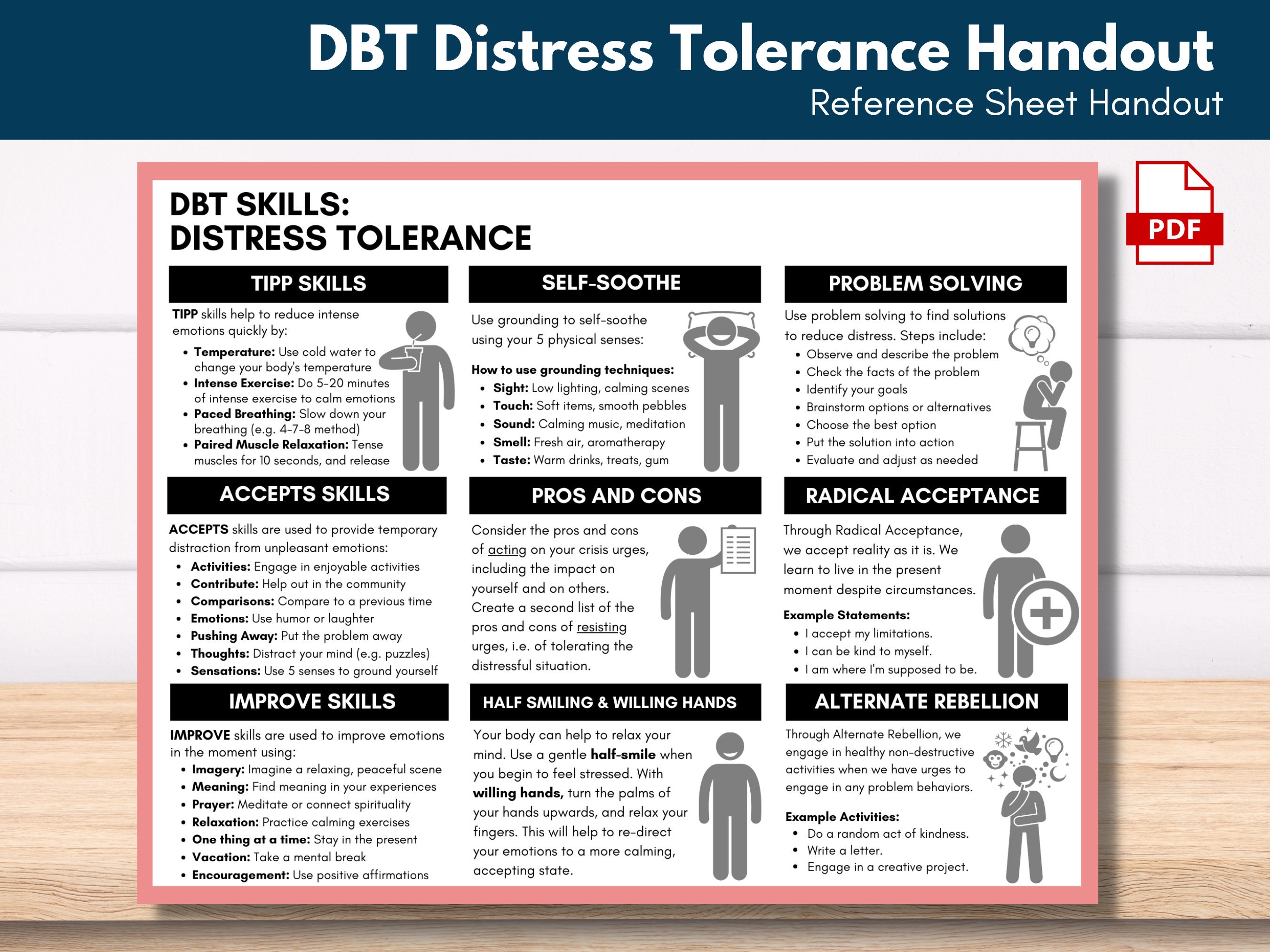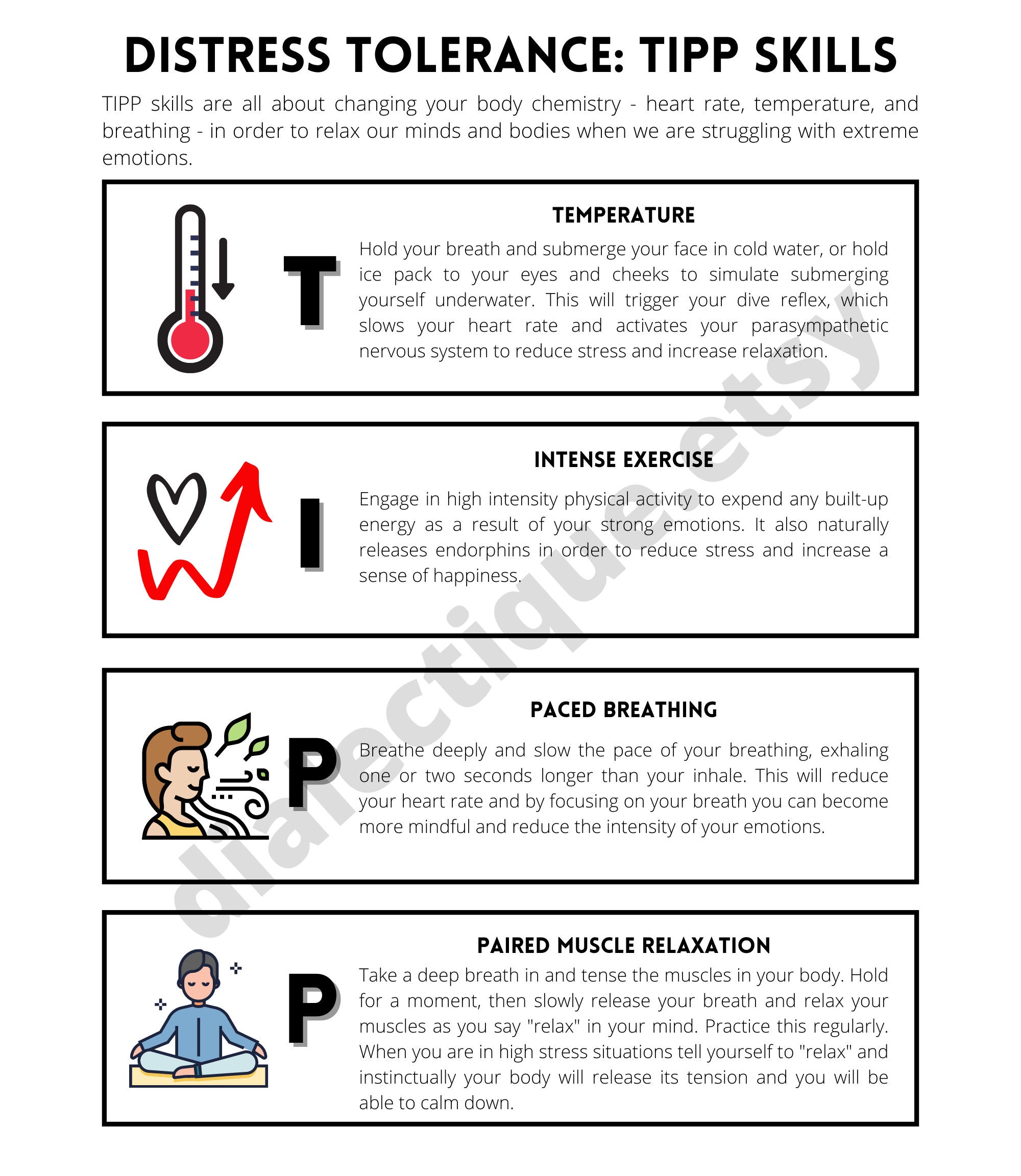Dbt Distress Tolerance Worksheets - Dbt skills worksheet introduces three skills commonly used in dbt: The distress caused by resisting an emotion. When you face problems out of your control, it’s natural to think “this isn’t fair” or “i shouldn’t have to deal with this.” but these ways of thinking. These are skills for tolerating painful events, urges, and emotions when you cannot make things better right away. These are skills for tolerating painful events, urges, and emotions when you cannot make things better right away.
These are skills for tolerating painful events, urges, and emotions when you cannot make things better right away. These are skills for tolerating painful events, urges, and emotions when you cannot make things better right away. The distress caused by resisting an emotion. When you face problems out of your control, it’s natural to think “this isn’t fair” or “i shouldn’t have to deal with this.” but these ways of thinking. Dbt skills worksheet introduces three skills commonly used in dbt:
The distress caused by resisting an emotion. When you face problems out of your control, it’s natural to think “this isn’t fair” or “i shouldn’t have to deal with this.” but these ways of thinking. These are skills for tolerating painful events, urges, and emotions when you cannot make things better right away. These are skills for tolerating painful events, urges, and emotions when you cannot make things better right away. Dbt skills worksheet introduces three skills commonly used in dbt:
Distress Tolerance Dbt Worksheets Dbt Distress Tolerance Res
These are skills for tolerating painful events, urges, and emotions when you cannot make things better right away. The distress caused by resisting an emotion. Dbt skills worksheet introduces three skills commonly used in dbt: When you face problems out of your control, it’s natural to think “this isn’t fair” or “i shouldn’t have to deal with this.” but these.
DBT Distress Tolerance Skill SELF SOOTHING Worksheet Mental Health
These are skills for tolerating painful events, urges, and emotions when you cannot make things better right away. Dbt skills worksheet introduces three skills commonly used in dbt: These are skills for tolerating painful events, urges, and emotions when you cannot make things better right away. The distress caused by resisting an emotion. When you face problems out of your.
Distress Tolerance Worksheets 19 Distress Tolerance Workshee
These are skills for tolerating painful events, urges, and emotions when you cannot make things better right away. When you face problems out of your control, it’s natural to think “this isn’t fair” or “i shouldn’t have to deal with this.” but these ways of thinking. These are skills for tolerating painful events, urges, and emotions when you cannot make.
DBT Self Soothing Worksheet Mental Health Worksheets DBT Worksheets
These are skills for tolerating painful events, urges, and emotions when you cannot make things better right away. These are skills for tolerating painful events, urges, and emotions when you cannot make things better right away. The distress caused by resisting an emotion. Dbt skills worksheet introduces three skills commonly used in dbt: When you face problems out of your.
DBT Distress Tolerance STOP Skill r/depression_help
When you face problems out of your control, it’s natural to think “this isn’t fair” or “i shouldn’t have to deal with this.” but these ways of thinking. These are skills for tolerating painful events, urges, and emotions when you cannot make things better right away. Dbt skills worksheet introduces three skills commonly used in dbt: These are skills for.
TIP Skill DBT Distress Tolerance Dialectical Behavior Therapy Dbt DBT
The distress caused by resisting an emotion. These are skills for tolerating painful events, urges, and emotions when you cannot make things better right away. These are skills for tolerating painful events, urges, and emotions when you cannot make things better right away. Dbt skills worksheet introduces three skills commonly used in dbt: When you face problems out of your.
14 Dialectical Behavior Therapy Worksheets Free PDF at
When you face problems out of your control, it’s natural to think “this isn’t fair” or “i shouldn’t have to deal with this.” but these ways of thinking. These are skills for tolerating painful events, urges, and emotions when you cannot make things better right away. The distress caused by resisting an emotion. These are skills for tolerating painful events,.
DBT Distress Tolerance Coping Skills Worksheet Handout Therapy
These are skills for tolerating painful events, urges, and emotions when you cannot make things better right away. When you face problems out of your control, it’s natural to think “this isn’t fair” or “i shouldn’t have to deal with this.” but these ways of thinking. These are skills for tolerating painful events, urges, and emotions when you cannot make.
Distress Tolerance Worksheets 19 Distress Tolerance Workshee
The distress caused by resisting an emotion. When you face problems out of your control, it’s natural to think “this isn’t fair” or “i shouldn’t have to deal with this.” but these ways of thinking. Dbt skills worksheet introduces three skills commonly used in dbt: These are skills for tolerating painful events, urges, and emotions when you cannot make things.
Distress Tolerance Dbt Worksheet prntbl.concejomunicipaldechinu.gov.co
Dbt skills worksheet introduces three skills commonly used in dbt: These are skills for tolerating painful events, urges, and emotions when you cannot make things better right away. The distress caused by resisting an emotion. These are skills for tolerating painful events, urges, and emotions when you cannot make things better right away. When you face problems out of your.
The Distress Caused By Resisting An Emotion.
Dbt skills worksheet introduces three skills commonly used in dbt: These are skills for tolerating painful events, urges, and emotions when you cannot make things better right away. When you face problems out of your control, it’s natural to think “this isn’t fair” or “i shouldn’t have to deal with this.” but these ways of thinking. These are skills for tolerating painful events, urges, and emotions when you cannot make things better right away.
